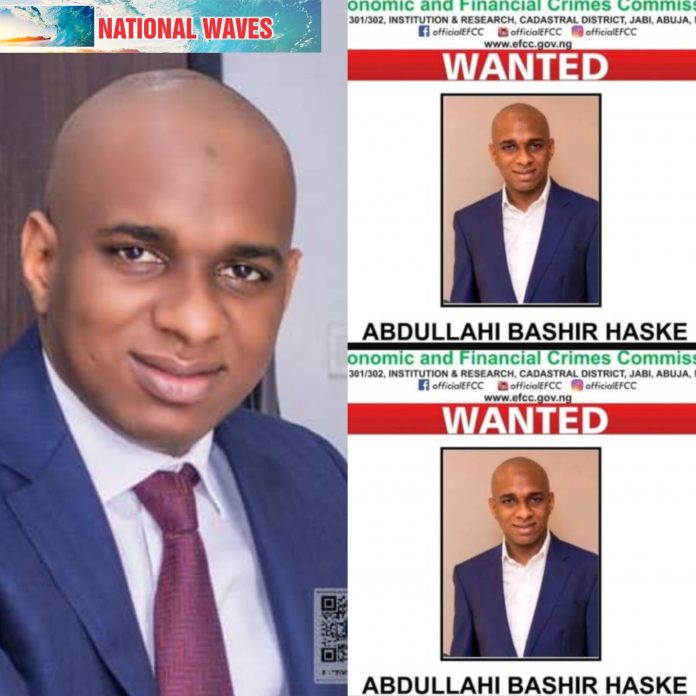●●● Says Its Abuse Of Process
Abdullahi Haske
By Victory Oghene
24 hours after the Economic and Financial Crimes Commission (EFCC) declared former Vice President, Atiku Abubakar’s son-in-law and Adamawa-born entrepreneur and investor, Abdullahi Haske wanted in connection with alleged criminal conspiracy and money laundering, he’s yet to surrender to the anti-graft agency, instead, his legal team has berated the EFCC for declaring him wanted in connection with alleged criminal conspiracy and money laundering.
The team described the action as “a blatant act of illegality and abuse of process”.
Haske’s lead counsel, Mr. Nkemakolam Okoro, in a press statement issued on Friday said that there was a pending motion before the Federal High Court, Abuja, challenging the validity of the warrant of arrest earlier obtained by the commission.
The statement read, “The recent decision by the Economic and Financial Crimes Commission (EFCC) to declare Mr. Bashir Abdullahi Haske wanted is described as a blatant act of illegality and an abuse of process, especially in light of a pending motion before the Federal High Court, Abuja, challenging the validity of the warrant of arrest earlier obtained by the commission.
“According to court filings, Mr Haske has consistently demonstrated his willingness to cooperate with the EFCC and relevant authorities. He honoured the commission’s invitation in July and has continued to abide by all directives, including providing medical documentation following health complications during his detention.
“It is therefore concerning that, despite his compliance, an arrest warrant was sought and obtained before his agreed return date.”
Okoro maintained that he and the other counsel representing the Adamawa-born businessman had approached the court and filed a motion to vacate and set aside the warrant arguing that it was obtained by misrepresentation, concealment of material facts, and in breach of his constitutional rights to fair hearing
He further stressed that the order issued on August 8 was specifically for his arrest, not for him to be declared wanted.
“It is trite law that where a court order is obtained by deceit or suppression of facts, the court has the inherent jurisdiction to set it aside ex debito justitiae,” he said.
Although the EFCC had earlier arrested and detained Haske, he was granted bail, released and his travelling passport seized. He’s said to have escaped from the country with his second passport.


